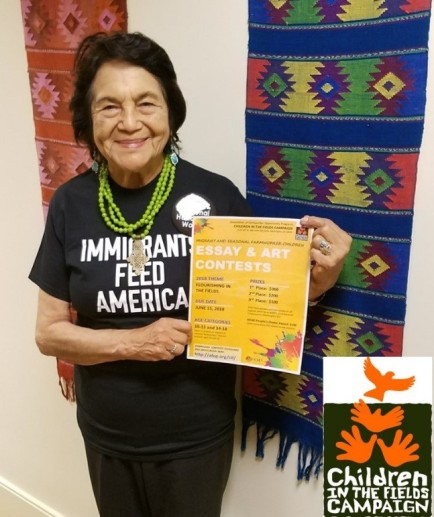By David Strauss, former Executive Director, Association of Farmworker Opportunity Programs
The words etched into the wall overhanging the stage of my high school auditorium were, “Where There Is No Vision the People Perish.” As the March 31 celebration of the birthday of Cesar Chavez approaches and as National Farmworker Awareness Week wraps up, we ought to take a few minutes to ponder why remembering his life and work remain so important to farmworkers, Latinos, and other Americans.
Cesar Chavez was a Mexican-American who labored in the fields under brutal conditions for terrible wages with no benefits, as did (and still do) many hundreds of thousands of men, women and, yes, children in the United States. In the 1960’s when Chavez and Dolores Huerta began their organizing work, most of America had no awareness of how their food got to their tables. Chavez and Huerta believed that the farm labor workforce could do several things at once: educate this country about the plight of farmworkers, improve their wages, reduce the harshness of their working conditions, and empower the workers to act on their own behalf. These visionary leaders chose union organizing as their model and nonviolent action as their guiding principle.
From the late sixties going forward they led numerous strikes, marches, consumer boycotts, and other worker-led actions, most famously in California’s grape and lettuce fields. Along the way they inspired young people, religious and political leaders, and other unions to join their cause. At one point, Cesar Chavez engaged in a long hunger strike, an action that resulted in converting then-Senator and Presidential primary candidate Robert F. Kennedy to the farmworker cause.

It was difficult: farmworkers, especially those who migrate among and within states, face huge challenges to organizing, including the barriers created by the lack of federal and state labor law protections. But Chavez and Huerta persisted, driven by their vision that farmworkers should have the same rights and treatment as the rest of America’s working people. They succeeded in establishing the United Farm Workers (UFW), still the largest and most effective farm labor union in the country. The UFW has pushed the state of California to drastically improve working conditions and wages as well as to enshrine farm labor rights in state law.
Is the struggle complete that Cesar Chavez helped spark? Far from it, as membership in the UFW and other farmworker unions still represent only a small percentage of the American farmworker community. Nonetheless, Chavez and Huerta achieved huge gains through organizing the most oppressed and vulnerable part of this country’s workforce.

By implementing their vision these leaders not only helped farmworkers, they inspired many of the people who founded AFOP member organizations to embrace their vision and find ways to speak to the hopes and dreams of farmworkers and other impoverished people throughout America.
Cesar Chavez helped all of us understand that, as the words on the wall of my high school suggested, vision matters.
For further reading:
“Why Are We So Angry?” – the Atlantic

